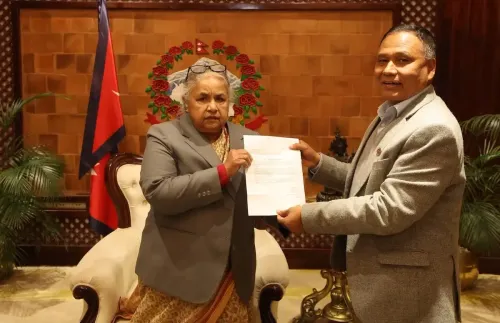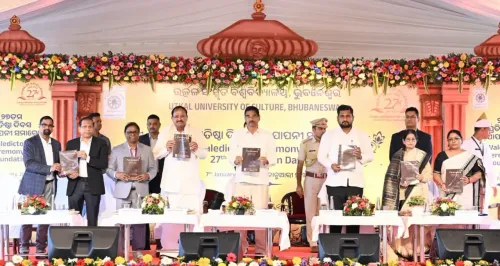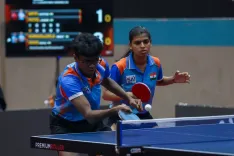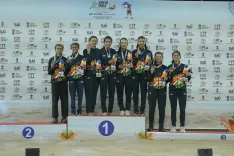What Response Is Expected from J&K’s AAC by May 16 After MHA Ban?

Synopsis
Key Takeaways
- The UAPA Tribunal has summoned the AAC to respond to the MHA's ban.
- The MHA accused the AAC of promoting secessionist activities.
- The AAC has until May 16 to present its case.
- The ban reflects ongoing tensions in Jammu and Kashmir.
- Legal proceedings could shape the future of the AAC.
New Delhi, May 2 (NationPress) The Unlawful Activities (Prevention) Tribunal has mandated that the banned Jammu and Kashmir-based Awami Action Committee (AAC), led by Mirwaiz Umar Farooq, and its leaders must either appear before it on May 16 or submit their responses through legal representation concerning the Centre’s decision to classify it as an outlawed organization, as stated in an official notice released on Friday.
Comprising Justice Sachin Datta, the Tribunal has notified the AAC and its leaders to assess whether there is adequate justification for labeling the AAC as an unlawful collective.
The notice from the Registrar of the Tribunal, based in the Delhi High Court, stipulates, “You are required to appear before the Tribunal on May 16 at 5 p.m. in the Delhi High Court for further proceedings. Attendance can also be arranged through a duly authorized counsel/advocate.”
The Ministry of Home Affairs (MHA) imposed a five-year ban on the AAC in a notification issued on March 11.
The notification specified that the AAC functions as a secessionist entity engaged in anti-national conduct and inciting youth towards violence.
This Tribunal's initiative to allow the AAC to present its objections or response regarding the MHA’s notification is a preliminary step towards determining whether to affirm the declaration made by the Centre.
Under the UAPA, such a ban will not be enacted unless confirmed by the Tribunal.
During the announcement of the AAC’s ban in March, the MHA highlighted that the organization is implicated in fostering and supporting the secession of Jammu and Kashmir from India through anti-national and subversive activities; instigating discontent among the populace; inciting destabilization of law and order; advocating the use of arms to separate Jammu and Kashmir from the Union of India; and promoting hostility against the established Government.
The Ministry further indicated that AAC leaders and members have been involved in collecting funds to facilitate unlawful activities, including aiding secessionist, separatist, and terrorist actions in Jammu and Kashmir.
In justifying the five-year ban, the Centre pointed to a charge sheet filed by the National Investigation Agency against Aftab Ahmad Shah, also known as Shahid-ul-Islam (AAC's spokesperson and media advisor), along with 11 others on January 18, 2018, in a Special Court in New Delhi under sections 120B, 121, 121A, and 124A of the Indian Penal Code, which address offenses such as sedition, conspiracy, and waging war.
They also face charges under sections 13, 16, 17, 18, 20, 39, and 40 of the Unlawful Activities (Prevention) Act, 1967, which pertain to various unlawful activities and terrorist acts, including penalties for unlawful acts, terrorist actions, raising funds for terrorism, conspiracy, and other preparatory acts, membership in terrorist organizations, and support for terrorist entities.
On April 11, the separatist and religious figure Mirwaiz Umar Farooq claimed that authorities had placed him under house arrest in Srinagar, restricting his ability to deliver his weekly sermon and offer prayers at the Jamia Masjid.
The AAC was established in 1963 by the late Mirwaiz Maulana Mohammad Farooq during the Holy Relic agitation.
Following the assassination of the elder Mirwaiz by terrorists in 1990 at his residence in Srinagar, the AAC has been led by his son, Mirwaiz Umar Farooq.










